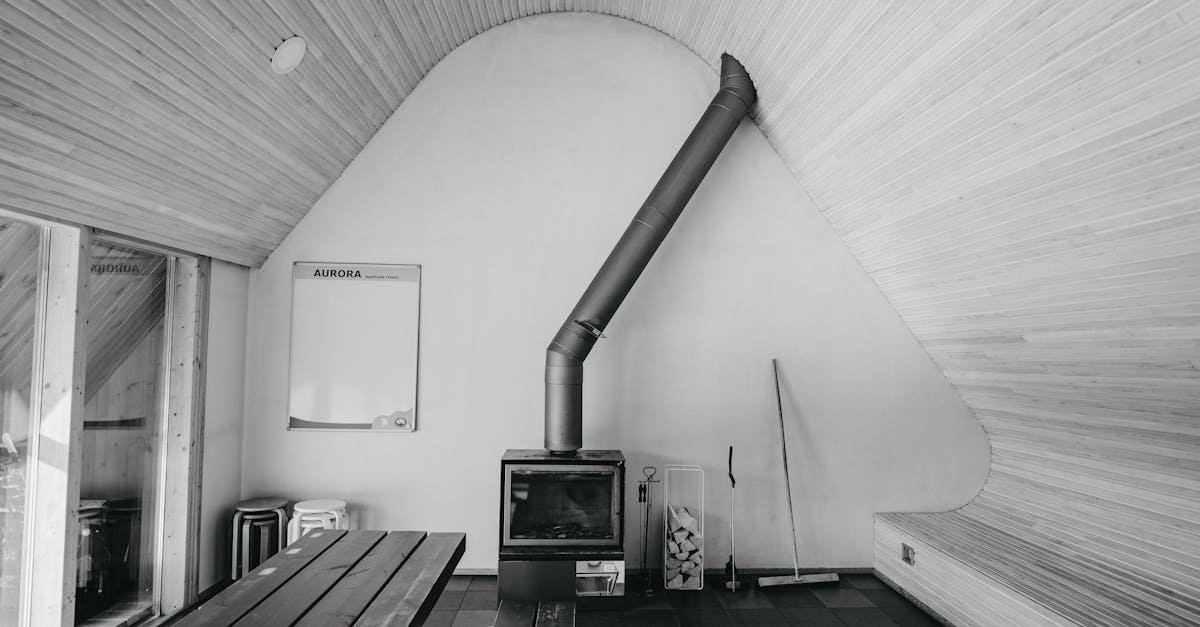If you’re looking for energy-efficient heater alternatives, consider options like heat pumps, infrared heaters, and pellet stoves. These alternatives not only reduce energy consumption but also lower your utility bills while keeping your space cozy.
Heat pumps transfer heat instead of generating it, making them highly efficient. Infrared heaters warm objects directly, providing instant warmth without wasting energy. Pellet stoves use renewable biomass, offering an eco-friendly heating solution. By exploring these alternatives, you can stay warm and save money while being kinder to the environment.
Overview of Energy-Efficient Heater Alternatives
Energy-efficient heater alternatives provide effective solutions for your heating needs. They reduce energy consumption, lower costs, and improve comfort. Various options exist to suit different preferences and spaces.
Electric Space Heaters
Electric space heaters, such as models from Vornado and Lasko, excel in heating small areas. They typically cap at 1500 watts due to safety rules. The Vornado VH200 stands out for its safe operations and efficient heat distribution. These heaters work quickly to warm a room, making them ideal for immediate comfort.
Hydronic Electric Heaters
Hydronic electric heaters use electricity to heat oil within the unit. This method offers longer-lasting warmth. Compared to standard electric convection heaters, these units are more energy-efficient. They maintain a stable temperature over time, providing a comfortable environment.
Oil-Filled Radiators
Oil-filled radiators, like the De’Longhi TRD40615T, operate silently and efficiently. They heat slowly but retain warmth for extended periods. Their durability makes them suitable for whole-room heating. These heaters provide a cozy atmosphere, especially in larger spaces.
Types of Energy-Efficient Heaters
Energy-efficient heaters come in various forms, depending on your heating needs and preferences. Here are key types to consider.
Electric Heaters
Electric heaters are safe and efficient for home heating. Space heaters, like the Lasko 754200 Ceramic Heater and Vornado VH200, heat individual rooms effectively. They often use a maximum of 1500 watts, following the National Electrical Code. Some models, such as the Dreo Solaris Slim H3, offer oscillation features. These features help distribute heat evenly, ensuring warmth reaches every corner quickly.
Infrared Heaters
Infrared heaters provide direct warmth to objects and people. They heat surfaces rather than the air, minimizing energy waste. This makes them great for outdoor spaces or large rooms with high ceilings. They warmth quickly and can reduce energy costs significantly on bill statements.
Heat Pumps
Heat pumps transfer heat instead of generating it. They extract heat from the outside air or ground and bring it indoors. They’re highly efficient, offering both heating and cooling functions. This versatility makes them suitable for year-round comfort. When temperatures are mild, heat pumps use less energy compared to electric heaters.
Benefits of Choosing Energy-Efficient Heaters
Energy-efficient heaters offer clear advantages. These benefits include cost savings and reduced environmental impact.
Cost Savings
- Propane Heaters: Propane heaters reach efficiency ratings of up to 99%. They serve as a reliable backup heating source, and their dependence on propane, not electricity, lowers utility costs.
- Pellet Stoves: Though pellet stoves cost more upfront, they save money long-term. They burn clean, recycled fuels that result in effective heating and reduced costs over time.
- Hydronic Radiant Heating: This system circulates hot water through tubes. It minimizes heat loss through ductwork. This efficiency helps maintain warmth longer, cutting down on heating expenses.
- Reduced Emissions: Many energy-efficient heaters release fewer greenhouse gases than traditional options. This leads to better air quality and a lighter carbon footprint.
- Sustainable Fuel Sources: Options like pellet stoves use renewable biomass. This promotes sustainability and decreases reliance on fossil fuels.
- Energy Conservation: Efficient heating systems consume less energy. Less energy use means fewer resources consumed, fostering a more sustainable environment.
Factors to Consider When Choosing a Heater
Choosing the right heater involves a few key factors. You must consider the size of the space and the availability of energy sources when making your decision.
Size of the Space
The size of the space directly affects heating efficiency. Small rooms benefit from compact solutions, while larger areas require more powerful options. For instance, pellet stoves are perfect for medium to large spaces. They heat effectively with recycled wood pellets, ensuring warmth without harmful emissions. Propane heaters also excel in medium to large rooms, achieving efficiencies up to 99%. Catalytic heaters fit smaller to medium spaces, working well indoors without producing harmful gases. Always measure your space before selecting a heater. The right size ensures optimal warmth and efficiency.
Energy Source Availability
Energy source availability plays an essential role in your heater choice. If you have access to natural gas, catalytic heaters offer waste-free heating. Propane heaters require liquid propane, making them ideal during power outages. Pellet stoves rely on biomass fuel, which is eco-friendly and sustainable. Consider your local energy prices too. Some sources may be more economical in the long run. Evaluate what’s available in your area, as this can guide you to the most cost-effective heating solution.
Conclusion
Exploring energy-efficient heater alternatives opens up a world of possibilities for your home. By choosing options like heat pumps infrared heaters or pellet stoves you can enjoy warmth while minimizing your energy consumption. Each alternative offers unique benefits tailored to your needs and space.
As you consider your heating options remember the importance of evaluating your specific requirements. Whether you prioritize eco-friendliness cost savings or effective heating solutions there’s an energy-efficient heater that fits your lifestyle. Making an informed choice not only enhances your comfort but also contributes to a sustainable future. Embrace these alternatives and enjoy a cozy home without compromising on efficiency.








